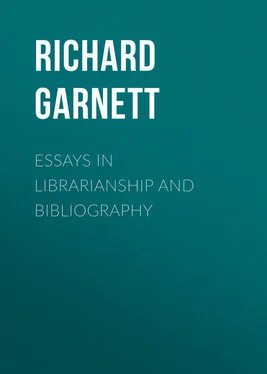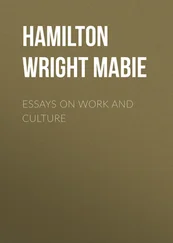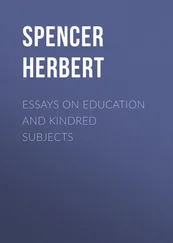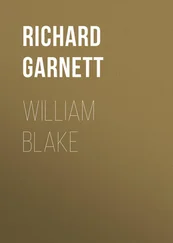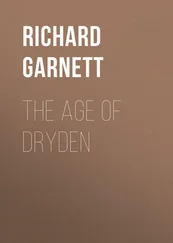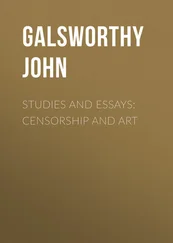Richard Garnett - Essays in Librarianship and Bibliography
Здесь есть возможность читать онлайн «Richard Garnett - Essays in Librarianship and Bibliography» — ознакомительный отрывок электронной книги совершенно бесплатно, а после прочтения отрывка купить полную версию. В некоторых случаях можно слушать аудио, скачать через торрент в формате fb2 и присутствует краткое содержание. Жанр: foreign_antique, foreign_prose, на английском языке. Описание произведения, (предисловие) а так же отзывы посетителей доступны на портале библиотеки ЛибКат.
- Название:Essays in Librarianship and Bibliography
- Автор:
- Жанр:
- Год:неизвестен
- ISBN:нет данных
- Рейтинг книги:4 / 5. Голосов: 1
-
Избранное:Добавить в избранное
- Отзывы:
-
Ваша оценка:
- 80
- 1
- 2
- 3
- 4
- 5
Essays in Librarianship and Bibliography: краткое содержание, описание и аннотация
Предлагаем к чтению аннотацию, описание, краткое содержание или предисловие (зависит от того, что написал сам автор книги «Essays in Librarianship and Bibliography»). Если вы не нашли необходимую информацию о книге — напишите в комментариях, мы постараемся отыскать её.
Essays in Librarianship and Bibliography — читать онлайн ознакомительный отрывок
Ниже представлен текст книги, разбитый по страницам. Система сохранения места последней прочитанной страницы, позволяет с удобством читать онлайн бесплатно книгу «Essays in Librarianship and Bibliography», без необходимости каждый раз заново искать на чём Вы остановились. Поставьте закладку, и сможете в любой момент перейти на страницу, на которой закончили чтение.
Интервал:
Закладка:
Connected with the subject of indexes is that of dictionary catalogues, in which the alphabetical and the subject catalogues are found in a single list. I retain the opinion I have always held, that this plan may answer where the library and the catalogue are not extensive, but that where they are, confusion results; the wood cannot be seen for the trees. I therefore recommend the librarian of even a small library, in planning his catalogue, as well as everything else, to make sure whether his library may not be destined to become a great one. Half the difficulties under which great libraries labour arise from the failure to take from the first a sufficiently generous view of the possibilities and prospects of the institution. With this view of dictionary catalogues, it is not likely that they will be adopted at the British Museum, but I have already explained more than once the facilities which the Museum possesses for forming an unequalled series of subject catalogues by simply, when the great general catalogue has been printed, cutting up copies printed on one side only, and arranging them in a number of indexes. There is no doubt that the Museum can amply provide for its own needs in this manner, and thus remove the reproach under which it has always laboured, and still labours, of having no subject catalogue except Mr. Fortescue's. The question is whether the indexes thus created are to become available for the service of libraries and students all over the world by being published and circulated. The solution of this question rests with the Government, and I have alluded to it here principally in the hope of eliciting that expression of public opinion without which Government is hardly likely to act. The question will probably become an actual one towards the end of the present century.
Mention of this question naturally leads to another, which occasioned one of the most interesting discussions of the Conference of 1877 – the subject of the British Museum in its relation to provincial culture. This was ably introduced by our friend Mr. Axon, who dwelt especially on two points in which provincial culture could be promoted by the Museum – the distribution of duplicates and the printing of the catalogue. On both these I am enabled to announce the most satisfactory progress since they were ventilated in 1877. As regards the distribution of duplicates, indeed, further progress is impossible, for we have distributed all we can spare. The subject was energetically taken up by the present Principal Librarian, Mr. Maunde Thompson, shortly after his accession to office, and the result has been that almost all the principal libraries throughout the country have received important benefactions from the Museum. Libraries of the rank of the Bodleian and the Guildhall have, of course, received the first consideration; but nearly all have had some accession, and in some instances provision has been made for a regular supply of duplicate parliamentary papers. Since the distribution of these duplicates the opportunity has further presented itself, through the extensive purchases made at the sale of the Hailstone Library, for enriching Yorkshire libraries with duplicate tracts relating to that county, and I am sure that the trustees will readily avail themselves of any subsequent occasions. I am aware that some think that distribution might be carried even further, but I am certain that this is not the case. We are bound in honour not to give any presented books; valuable presented books must be protected by second copies; copyright books cannot be parted with because receipts have been given for them which, if the books disappeared, there would be nothing to justify, while the books and the stamp showing the date of reception may be required for legal purposes; finally, the international copyright which used to provide the Museum with so many duplicates of foreign books has now become utterly extinct in consequence of the Berne Convention. The progress made in the far more important department of the printing of the catalogue is already well known to you. I have been able to give the Association a satisfactory report of progress on two occasions, and I am now able to state that we have entered into letter P. Some important gaps remain to be filled up, but on the other hand the latter part of the catalogue is printed and published from U to the end. If the Treasury continues its aid, I have little doubt that the whole will be published some time before the end of the century. Mr. Axon certainly did not exaggerate the value which such a publication would possess for general culture, and I am only sorry that it is not as yet properly recognised. Every large town ought to have a copy of the Museum Catalogue, and the supply of the accession parts ought to be regularly kept up. It is too late now to do what might have been done if the importance of the undertaking had been recognised from the first: but the oversight can soon be repaired if the catalogue is reprinted as soon as completed, with the inclusion of all the additional titles that have since grown up. The edition can then be made as large as is necessary to accommodate every important town in the United Kingdom. But this will not be done without the application of considerable pressure to the Government, and this will not come without a much more general interest on the part of the public than there is any reason to suppose exists at present. This might, however, be created by judicious stimulus, which must come in the first instance from librarians, who, though not collectively a highly influential body, have many means of privately influencing persons of weight, and making themselves directly and indirectly heard in the public press.
I will take the opportunity of adding a few words for the honour of a late eminent librarian. In the numerous papers which I have written on the subject of the Museum Catalogue, I have always made a point of bringing forward the inestimable services of the late Principal Librarian, Mr. Edward Augustus Bond, in relation to it. Everything which I have said I repeat. Without Mr. Bond the catalogue would not now exist in print, or its appearance would at any rate have been indefinitely deferred. In examining, however, non-official papers, I have lately ascertained that Mr. Thomas Watts, one of my predecessors as Keeper of Printed Books, advocated the printing of the catalogue as early as 1855. Like myself, when I recommended printing, not on abstract grounds, but from the impossibility of any longer finding space for the catalogue in the Reading Room, Mr. Watts was led to adopt his view by collateral considerations, which it would take too much time to explain now, but which will be understood when I publish his paper, which I purpose doing. Meanwhile I am glad to have paid this passing tribute to the memory of the most learned and the most widely informed librarian that the Museum or the country ever possessed.
Speaking of the publication of Museum catalogues since the foundation of this Association, I ought not to forget that of the early English books prior to 1640, edited by Mr. Bullen; or that of the maps, edited by Professor Douglas; or the various catalogues of Oriental books and manuscripts. The latter, prepared by Dr. Rieu, are treasures of information, very much more than ordinary catalogues.
Another subject was introduced at the Conference of 1877, which admits of wider development than any of those already mentioned, and in which very much more remains to be done. I allude to the question of the employment of photography as an auxiliary to bibliography, broached by our lamented friend the late Mr. Henry Stevens, in his paper on "Photo-Bibliography." Though the ideas suggested by Mr. Stevens were highly ingenious, they were perhaps better adapted for development by private enterprise than by library organisations. But they led up directly to another matter of much greater importance, which I had myself the honour of bringing before the Dublin Conference – the feasibility of making book-photography national by the creation of a photographic department at the British Museum. I need not repeat at length what was then said by myself and other speakers respecting the immense advantage of providing a ready and cheap means for the reproduction of books in facsimile, by which rare books and perishing manuscripts could be multiplied to any extent; by which press copies could be provided at a nominal expense for anything that it was desired to reprint; by which legal documents could be placed beyond the reach of injury, and the vexed question of the custody of parish registers solved for ever; by which a great system of international exchange could be established for the historical manuscripts of all countries. The one point which cannot be too often repeated or enforced is that the essence of the scheme consists in the abolition of the private photographer, at present an inevitable and most useful individual, but who is sadly in the way of larger public interests. So long as a private profit has to be made, photography cannot be cheap. Transfer this duty to a public officer paid by a public salary, and the chief element of expense has disappeared; while the slight expense of this salary and cost of material, if it is thought worth while to insist upon its repayment, will be repaid over and over by a trifling charge imposed upon the public. Our Association took the matter up, but nothing tangible has as yet resulted from its efforts, nor can much be fairly expected. We are not a body adapted for public agitation, nor can we be; we have too little influence as individuals; as a corporation we are too dispersed; our general meetings are necessarily infrequent; we want organisation and momentum. Nevertheless, very important progress in this direction may be recorded, or I should not have been able to include it in my address. It is due to the University of Oxford, which has established a photographic department in connection with the Bodleian Library and the University Press, which has shown the practicability of the undertaking, and has already rendered important services to private persons and public institutions, the British Museum among the latter. We are as yet far from the ideal, for the University must of necessity make a higher charge than would be requisite in a Government department, which might indeed be but nominal. But an important step has been taken, and Oxford will always have the honour of having taken the lead in the systematic application of photography to library purposes, as the sister University has that of having been the first, not merely to print a catalogue but to keep a catalogue up in print.
Читать дальшеИнтервал:
Закладка:
Похожие книги на «Essays in Librarianship and Bibliography»
Представляем Вашему вниманию похожие книги на «Essays in Librarianship and Bibliography» списком для выбора. Мы отобрали схожую по названию и смыслу литературу в надежде предоставить читателям больше вариантов отыскать новые, интересные, ещё непрочитанные произведения.
Обсуждение, отзывы о книге «Essays in Librarianship and Bibliography» и просто собственные мнения читателей. Оставьте ваши комментарии, напишите, что Вы думаете о произведении, его смысле или главных героях. Укажите что конкретно понравилось, а что нет, и почему Вы так считаете.
